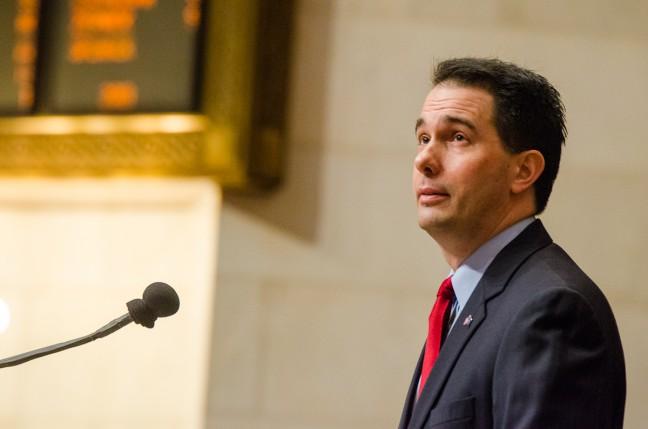The state Senate approved Gov. Scott Walker’s proposed $500 million in tax cuts Tuesday, sending its version to the Assembly before it hits Walker’s desk.
The bill, which Walker announced in his January State of the State address, would provide $406 million in property tax cuts and $98 million in income tax cuts.
“I don’t care which side of the aisle you’re on. You have to be hearing from constituents that the property taxes are a continuous problem for the people here in Wisconsin,” Senate Majority Leader Scott Fitzgerald, R-Juneau, said during the Senate’s special session. “This is a great day for taxpayers, and it’s a great day for Wisconsin.”
The bill passed in the Senate in a 17-15 vote, with only one Republican legislator, Sen. Dale Schultz, R-Richland Center, voting against and one Democrat absent.
Walker said in a statement that the roughly $2 billion in tax cuts since he took office is “in stark contrast to the failed policies of the past” and that he looks forward to the Assembly vote.
“The hardworking taxpayers of Wisconsin know how to spend their money better than politicians in Madison do, so I thank members of the Senate for helping us return the state’s surplus to the people who earned it,” Walker said.
The Assembly had approved a similar version of the proposal before it went to the Legislature’s Joint Finance Committee. In that committee, GOP lawmakers in both chambers reached the compromise that the Senate voted on.
Democrats criticized the bill, proposing multiple amendments and saying it did not do enough to address more deep-rooted problems in the state, including the structural deficit and lack of funding for education.
“I believe in the hard working people of Wisconsin, but they deserve to have great schools. They deserve to have roads and they deserve to know their loved ones are in great county nursing homes,” Sen. Jennifer Shilling, D-La Crosse, said.
Senate Minority Leader Chris Larson, D-Milwaukee, said the money should be invested in improving infrastructure in the state and saved in a rainy day fund.
“Spending more is not a recipe for long term solutions,” Larson said. “It’s an election year gimmick to continue to spend more and more without a sustainable look at what we’re going to do in the future.”













